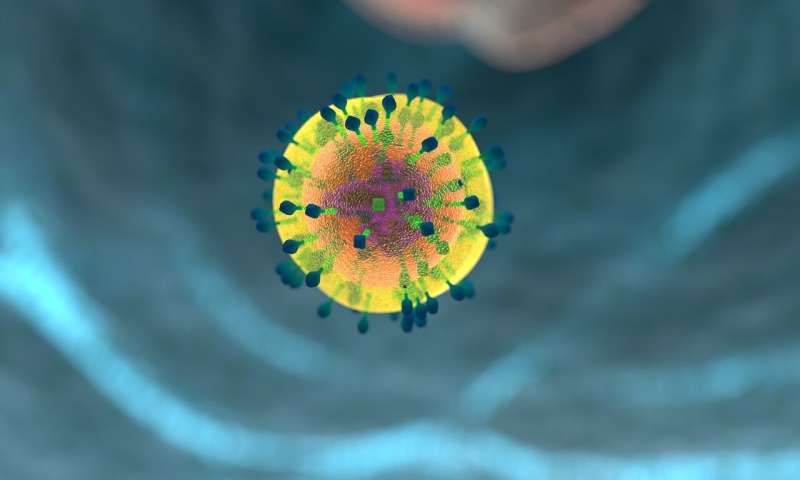Persistent immune memory of COVID-19 found in recovered patient T cells

Oxford University researchers have found that natural infection with COVID-19 produces a robust T cell response, including inducing T cell 'memory' to potentially fight future infections.
The results, published in Nature Immunology, are a joint effort from the Oxford COVID-19 immunology group, led by the Medical Research Council Human Immunology Unit at the MRC Weatherall Institute of Molecular Medicine and the Chinese Academy of Medical Science Oxford Institute at the University of Oxford.
While research has shown that COVID-19 induces a B cell antibody response, it has been less clear whether COVID-19 causes the immune system to make virus-specific T cells too, and whether they are important for recovery from the initial infection, and protection against new infections.
While antibodies latch onto and destroy disease-causing agents like viruses and bacteria, T cells latch on to diseased cells within the body, such as tumour cells or virus-infected cells. T-cells also help attract other immune cells to the area.
Study lead Professor Tao Dong from the MRC Human Immunology Unit said: "By studying the T cell immune response in depth and breadth, we will begin to build a better understanding of why some individuals develop milder disease, and how we might be able to prevent or treat infections.
"T cells may also be longer lasting than antibodies, and so could offer alternative methods to diagnose whether someone has had a past COVID-19 infection, after antibody levels have waned."
T cells are attracted to tumour or viral protein fragments (called epitopes) displayed on the surface of diseased cells, which act like waving a flag to the T cells, showing them where they are needed.
In this study, the researchers analysed blood samples from COVID-19 patients to identify peptides containing T cell epitopes, including six immunodominant regions (epitope clusters) that were targeted by T cells in many of the patients.
Professor Dong, who is also the Founding Director of the Chinese Academy of Medical Sciences Oxford Institute (COI) based at the Nuffield Department of Medicine, University of Oxford, added "By identifying regions of the virus that are targeted by the immune system, we anticipate the findings will help define the role of T cells in disease outcomes."
The research team compared blood samples from 28 mild and 14 severely ill COVID-19 patients, as well as samples from 16 healthy donors.
Study co-lead Professor Graham Ogg, Interim Director of the Medical Research Council Human Immunology Unit said: "We found that individuals with mild COVID-19 had a different pattern of T cell response when compared to those with more severe infection; this could help provide insights to the nature of immune protection."
While research team think that a poor quality T cell response might contribute to SARS-CoV-2 viral persistence and COVID-19 mortality, recovered patients with mild as well as severe disease still had T cell memory two months after infection.
Only a small number of T cells need to have a memory of the primary infection, and they can replicate to mount a robust immune response quickly.
The researchers also found that the spike protein of SARS-CoV-2 was often recognised by T-cells from recovered patients, which adds support for the approaches used by many of the current vaccines in development, including the Oxford vaccine. The research team additionally found that other parts of the virus, including its membrane and its nucleoprotein, also provoked a strong T cell immune response, potentially providing other vaccine targets too.
Professor Ogg, who is a working clinician as well as a researcher at the University of Oxford Radcliffe Department of Medicine added "The research demonstrates the power of bringing together many clinicians and scientists to address a global challenge, and we are extremely grateful to all of those involved, especially the research participants."
The team now plan to investigate how long T cell immune memory lasts and whether this might have implications for novel diagnostic tests and new treatments.
More information: undefined undefined et al. Broad and strong memory CD4+ and CD8+ T cells induced by SARS-CoV-2 in UK convalescent individuals following COVID-19, Nature Immunology (2020). DOI: 10.1038/s41590-020-0782-6
















